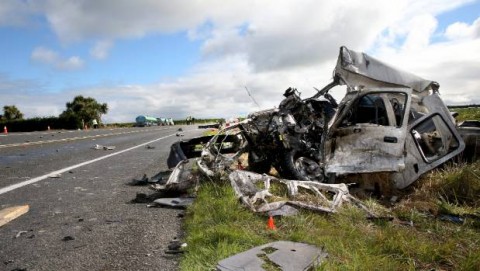
New research from 'Journal of Transport & Health' makes some startling findings.
In NZ we hear a continuous media narrative of cyclists being injured and killed, and while 2017 was an appalling year for fatalities, increases in injury levels were not nearly as great. A new study from England clarifies the figures, finding travel fatality rates vary more by age and gender than by transport mode.
The study finds, for example, that young men are safer cycling than driving, that males have higher fatality rates than females for cycling, driving and walking; pedestrians and cyclists have similar risks; older people have the highest fatality rates, regardless of travel mode.
And strikingly, fatality rates for pedestrians and cyclists are the same. That's according to Department for Transport figures for Great Britain in 2012: one death for every 26.3 million miles walked or cycled (38 deaths per billion miles).
Given New Zealand's similarities to England's in driving culture and dependence on car transport, these findings have real relevance here. This is supported by 2013 research by Wong and Koorey, which found that, 'per hour travelled, cycling had a similar crash rate for 15-19 year olds when compared to driving a light motor vehicle', and a recent academic study of injury rates by Woodward, Lai and Chieng who concluded that 'Cycling on the road in New Zealand is safer than horse riding, snow sports and rugby'.
Jenny Mindell, co-author of the study and Editor of Journal of Transport & Health, says: 'The risks of injury when cycling are actually small – and are very similar to the risks for pedestrians, even if you include pedestrians falling over, not just those who are hit. In particular, young men have a much higher risk if they drive – we should be encouraging them to walk or cycle instead. The media greatly exaggerates the risks of cycling.' Read the paper to find out more, it’s open access so freely available for you to read online: Comparative fatality risk for different travel modes by age, sex, and deprivation
